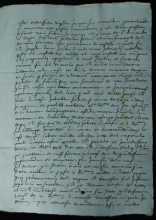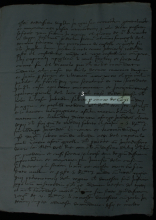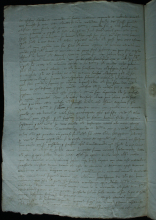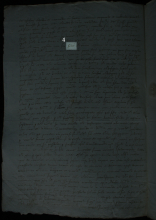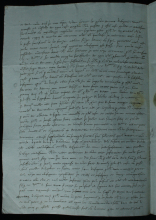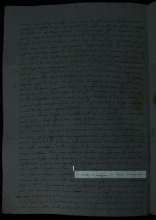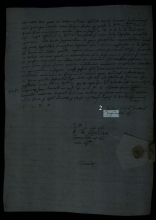Hungarian loan-words in the letters of Taddeo Lardi, governor of Eger
Taddeo Lardi was one of the Italian office-holders of Ippolito I d'Este, Archbishop of Esztergom and later Bishop of Eger who spent a rather long time in Hungary. In 1487 he was a chamberlain, from 1489 to 1492 officer of the Wardrobe and then again chamberlain at the archiepiscopal court. Afterwards, he returned to Ferrara for some years, and later on, he was the governor of the diocese of Eger, from 1501 to 1508 and from 1510 to 1511, and the canon custos of Eger from 1508 to 1510.
Most of the sources digitalized by the Vestigia research group are in Italian, and there are some documents in Latin. On the contrary, there is no text in Hungarian, though very rarely some loan-words can be detected in the Italian texts. The officers of Ippolito I d'Este needed to speak Hungarian at a basic level; this is testified by the following quotations. By his own admission, the chamberlain spends his entire time, or most of it, shouting, moaning, and whining, as the Hungarians do ("(...) tuto o magior parte del tempo mi abisognia expendere in cridi et in suspiri et hyay a l’ungaresca (...)") (1). In another letter, he called himself "segin" custos of Eger ("szegény" means "poor" in Hungarian) (2). In a letter from 1502, he reports to have gone to Eger "per carro de cozi" ("kocsi" means “coach" in Hungarian, from the name of the village of Kocs)(3), and in 1506 in a letter to the Dukes of Ferrara he swears to God that he has never spent a "filer", i.e., a penny of his lord without being in tears (4). The Hungarian word “fillér” comes from “Vierer”, German, and as part of monetary vocabulary it is an indicator of the Hungarian-German speaking urban clusters’ interaction and influence in Hungarian towns.
The original record held by: State Archives of Modena
Reference code: Archivio di Stato di Modena, Archivio Segreto Estense, Cancelleria, Carteggio Ambasciatori, Ungheria, busta 3, Taddeo Lardi
Date of creation: Eger, 20 September 1502, 8 June 1505, 13 December 1506, 8 January 1509

